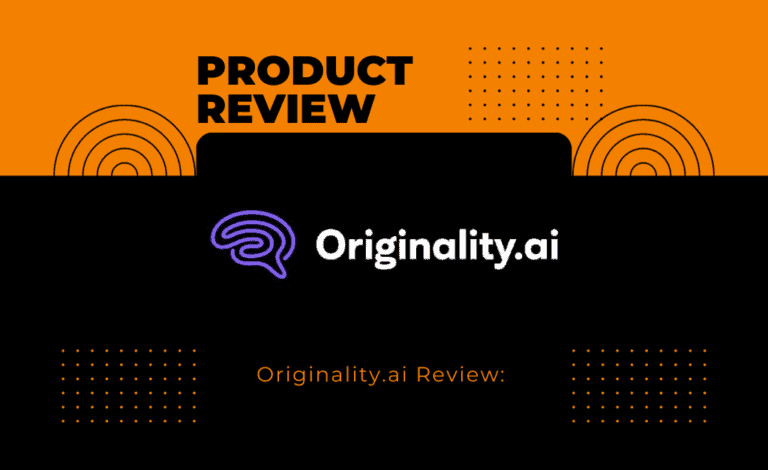
The Role of AI Writing Software in Different Industries: From Journalism to Marketing

Artificial Intelligence (AI) has been a game-changer across various industries, and the field of content creation is no exception. AI writing software is increasingly shaping the way we produce, curate, and consume content, with applications spanning diverse sectors such as journalism, marketing, and more. This article delves into the significant impact AI writing software has had on these industries, its potential benefits, and future prospects.
Table of Contents
AI Writing Software in Journalism
Enhancing news coverage
AI writing software has been instrumental in improving the speed and efficiency of news coverage. News organizations can leverage AI-powered tools to generate quick summaries or draft articles, particularly for data-driven stories such as financial earnings reports or sports recaps. These tools can rapidly process and analyze vast amounts of data, allowing journalists to focus on more in-depth analysis and interviews.
Personalized news feeds
AI writing software can also help create personalized news feeds for readers. By analyzing readers’ preferences, habits, and interests, AI algorithms can curate tailored content, providing a more engaging and relevant experience. This personalization can also drive user engagement and retention, which is vital for the sustainability of news organizations.
Fact-checking and combating fake news
AI writing software can play a pivotal role in fact-checking and combating misinformation. With the rapid spread of fake news on social media, the importance of verifying facts and debunking false claims has never been more critical. AI-powered tools can quickly scan multiple sources, cross-reference information, and identify inconsistencies, enabling journalists to maintain high standards of accuracy and trustworthiness.
AI Writing Software in Marketing
Content creation and curation
Content marketing is an essential aspect of modern digital marketing strategies. AI writing software can help marketers generate diverse content types, including blog posts, social media updates, and email campaigns. AI-powered tools can also streamline the content curation process by analyzing user engagement data and recommending high-performing content pieces to be shared or repurposed.
Search Engine Optimization (SEO)
AI writing software can significantly contribute to optimizing content for search engines. By analyzing keyword trends and user search behavior, these tools can suggest the most relevant keywords and phrases to target, enhancing the content’s visibility and discoverability. AI-powered software can also evaluate the readability and structure of content, ensuring that it aligns with search engine guidelines and best practices.
Personalized marketing campaigns
AI writing software can empower marketers to design and execute personalized marketing campaigns. By analyzing user data, AI algorithms can craft targeted messaging and promotional content that resonates with specific audience segments. This level of personalization can lead to higher conversion rates and improved customer loyalty.
AI Writing Software in E-commerce
Product descriptions and reviews
AI writing software can generate accurate, engaging, and optimized product descriptions for e-commerce platforms. By processing product data and incorporating relevant keywords, AI-powered tools can create descriptions that are both informative and SEO-friendly. Additionally, AI can assist in summarizing and analyzing customer reviews, helping businesses identify areas of improvement and address customer concerns more effectively.
Chatbots and customer support
AI writing software has played a significant role in improving customer support through the deployment of chatbots. These AI-powered virtual assistants can understand and respond to customer queries, providing quick and relevant information. Chatbots can also be programmed to upsell products or services, handle complaints, and direct users to helpful resources, all while reducing wait times and customer support costs.
AI Writing Software in Education and Research
Academic writing and research assistance
AI writing software can be invaluable for students, educators, and researchers alike. These tools can assist in generating outlines, summarizing articles, and even suggesting relevant sources for research papers. AI-powered writing assistants can also provide real-time feedback on grammar, style, and clarity, helping users improve their writing skills and produce high-quality academic work.
Personalized learning materials
AI writing software can create personalized learning materials for students, adapting the content to match their learning styles, abilities, and interests. By analyzing student performance data, AI algorithms can identify knowledge gaps and curate resources to address these areas. This level of personalization can lead to more engaging and effective learning experiences, fostering better academic outcomes.
Plagiarism detection
AI writing software can also be employed to detect plagiarism in academic work. By scanning and comparing the text against vast databases of existing content, AI-powered tools can identify instances of copied or paraphrased material, ensuring that academic integrity is maintained.
AI Writing Software in Entertainment and Media
Scriptwriting and storytelling
AI writing software is making inroads into the world of scriptwriting and storytelling, with algorithms capable of generating unique storylines, characters, and dialogue. While human creativity remains indispensable in this domain, AI-powered tools can assist writers in overcoming writer’s block, brainstorming new ideas, and refining existing content.
Video game narratives
n the realm of video games, AI writing software can contribute to the development of dynamic and immersive narratives. AI algorithms can adapt storylines based on player choices and actions, creating personalized gaming experiences that resonate with individual players.
AI Writing Software in Legal and Regulatory Industries
Contract drafting and review
AI writing software can streamline the process of drafting and reviewing legal documents, such as contracts and agreements. AI-powered tools can generate standard clauses and provisions, analyze existing documents for inconsistencies or errors, and suggest revisions to ensure compliance with relevant laws and regulations. This automation can save time and reduce the potential for human error in legal work.
Regulatory compliance
AI writing software can play a crucial role in helping businesses maintain regulatory compliance. By monitoring changes in laws and regulations, AI algorithms can identify potential compliance issues and suggest necessary updates to policies, procedures, and documentation. This proactive approach can help businesses avoid costly fines and penalties, while also safeguarding their reputation.
The Future of AI Writing Software
As AI writing software continues to evolve and improve, its applications across various industries are expected to expand further. Some potential developments include:
Enhanced natural language processing
As natural language processing (NLP) technology advances, AI writing software will become even more adept at understanding and generating human-like text. This will lead to more sophisticated and nuanced content, further blurring the line between human and machine-generated writing.
Integration with other AI technologies
AI writing software may eventually be integrated with other AI technologies, such as image and video recognition, to create fully automated multimedia content. This convergence of technologies could revolutionize industries like advertising, entertainment, and journalism, where the demand for engaging multimedia content is ever-growing.
Ethical considerations
As AI writing software becomes more advanced, ethical concerns surrounding the use of these tools will also emerge. Issues such as data privacy, content authenticity, and the potential displacement of human jobs will need to be addressed by governments, businesses, and society as a whole. Developing best practices and guidelines for the responsible use of AI writing software will be essential in ensuring a future where AI contributes positively to various industries.
Conclusion
AI writing software is undoubtedly transforming the landscape of content creation across diverse sectors, from journalism and marketing to education and entertainment. As these tools become more sophisticated and integrated into daily workflows, their impact on productivity, efficiency, and creativity will only increase. By embracing the potential of AI writing software while remaining mindful of the associated ethical considerations, businesses, and individuals can harness the power of AI to revolutionize their respective industries.


